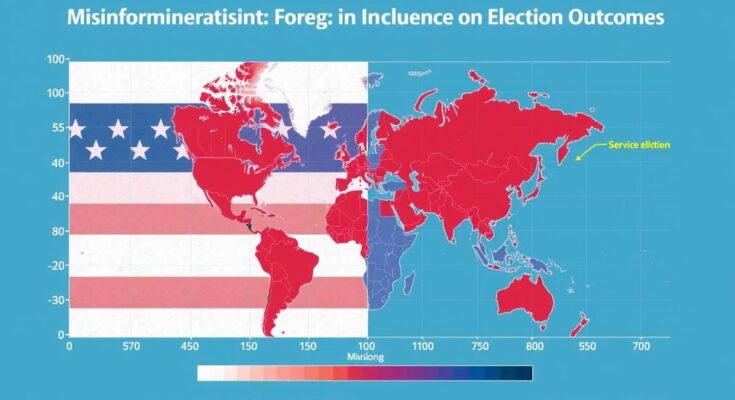In 2024, around 3.7 billion individuals voted in global elections amid rising concerns about misinformation and foreign interference. Studies reported limited impacts on electoral outcomes; however, notable cases in Romania and elsewhere reveal vulnerabilities. These incidents highlight an ongoing struggle for democracies in maintaining electoral integrity against technologically advanced threats.
In 2024, an unprecedented number of individuals were called to vote, with approximately 3.7 billion eligible voters across over 70 countries participating in what was deemed a significant ‘super year’ for elections. This included crucial ballots in the US, India, and Indonesia, alongside elections in authoritarian states such as Belarus and Iran. Despite the heightened fears of misinformation, generative AI, and foreign interference during electoral processes, studies indicated that these influences had a limited and modest impact on the results. Yet, the cancellation of Romania’s presidential election first-round results due to alleged foreign interference starkly contradicted claims of resilience against misinformation.
The year showcased several notable incidents illustrating the ongoing challenges posed by AI-driven misinformation and foreign attempts to influence democracy. For example, former Pakistani Prime Minister Imran Khan leveraged AI technology to create an artificial speech from prison, a controversial action amidst his disqualification from the election. In Europe, leading up to the parliamentary elections, there was an unprecedented rise in EU-related disinformation, although the majority of the voting occurred without major incidents. Similarly, Moldova’s elections were complicated by alleged Russian funding aiming to skew the EU membership vote, while the US faced its own threats, including bomb scares attributed to Russian sources on election day.
Furthermore, Romania’s unexpected political pivot, with an ultranationalist candidate rising prominently due to a TikTok campaign, ended with allegations of state-backed interference influencing the electoral outcome. This has prompted scrutiny into social media platforms and their role in election integrity. Through these instances, the year underscored the ongoing battle democracies face against misinformation and foreign manipulations trying to undermine their electoral integrity.
The concerns surrounding misinformation and foreign interference in elections have gained traction with the rise of social media and advanced technology, particularly generative AI. The global electoral landscape of 2024 demonstrated a combination of challenges faced by democratic systems, particularly as many countries took measures to protect the electoral process. Historically, foreign influence and misinformation have posed significant threats to democratic integrity, prompting calls for increased vigilance and regulation of digital platforms in the context of electoral conduct.
In conclusion, the events of 2024 serve as a critical reminder of the evolving threats posed by misinformation and foreign interference in global elections. While some studies indicate that these influences may not have dramatically impacted most electoral outcomes, significant instances, such as the case in Romania, illustrate that vulnerabilities remain. It is imperative for democratic institutions to continue adapting and strengthening safeguards against these challenges to maintain the integrity of electoral processes worldwide.
Original Source: www.euronews.com




